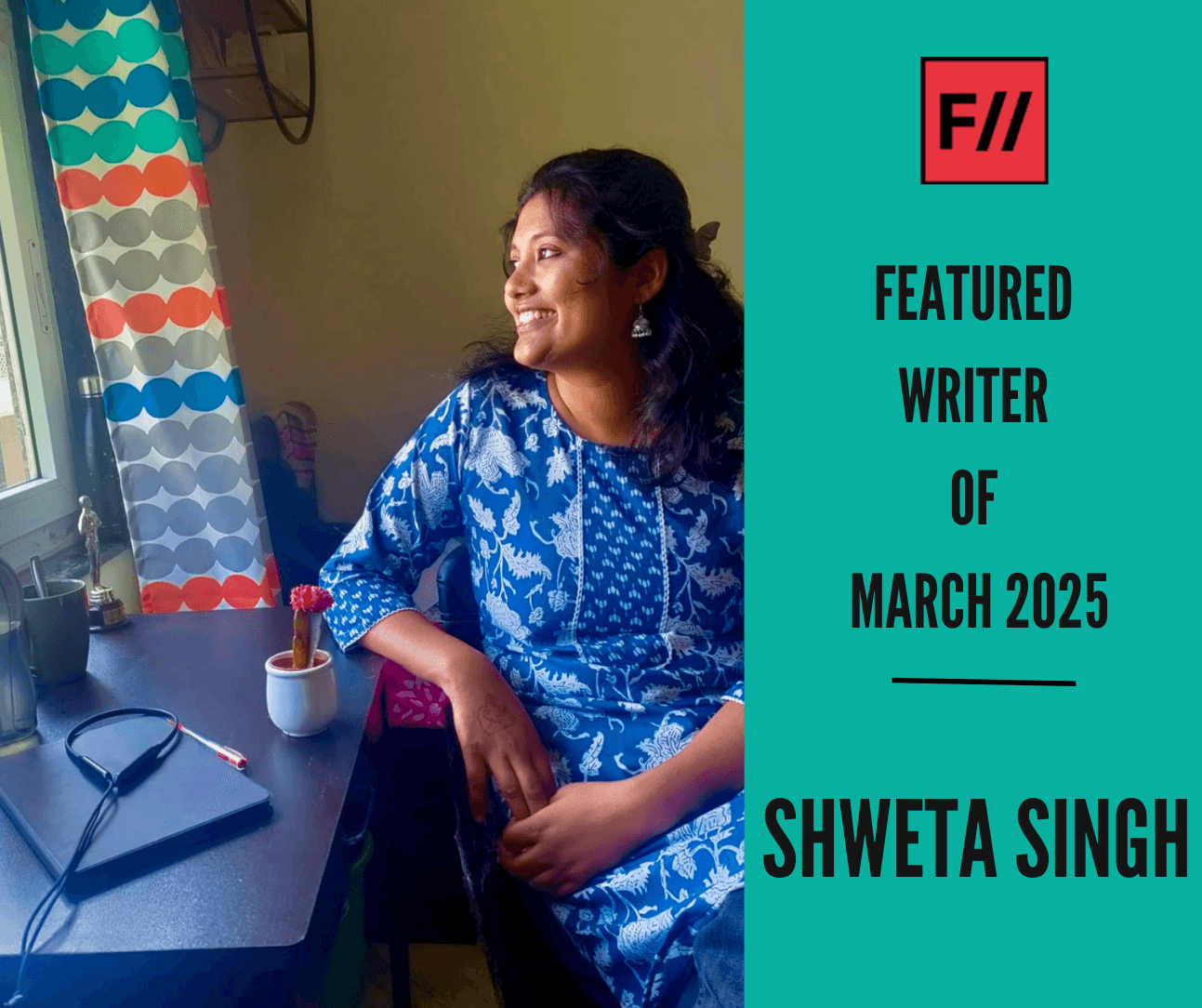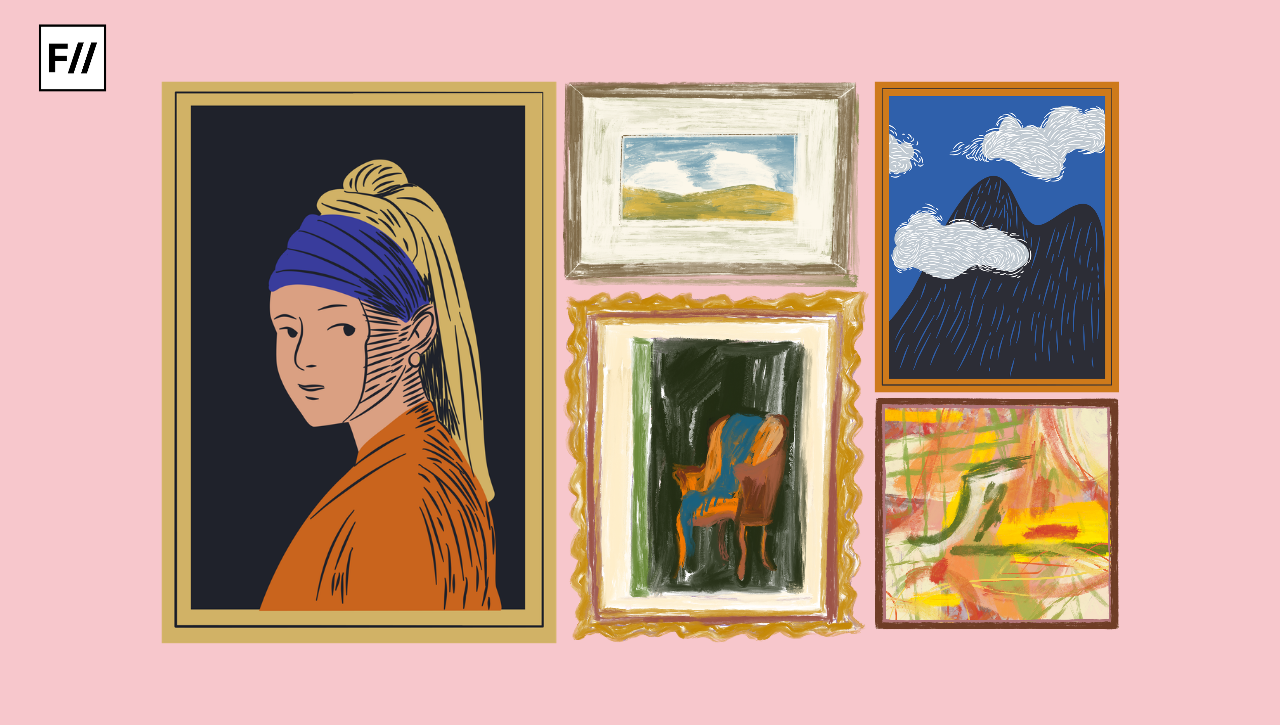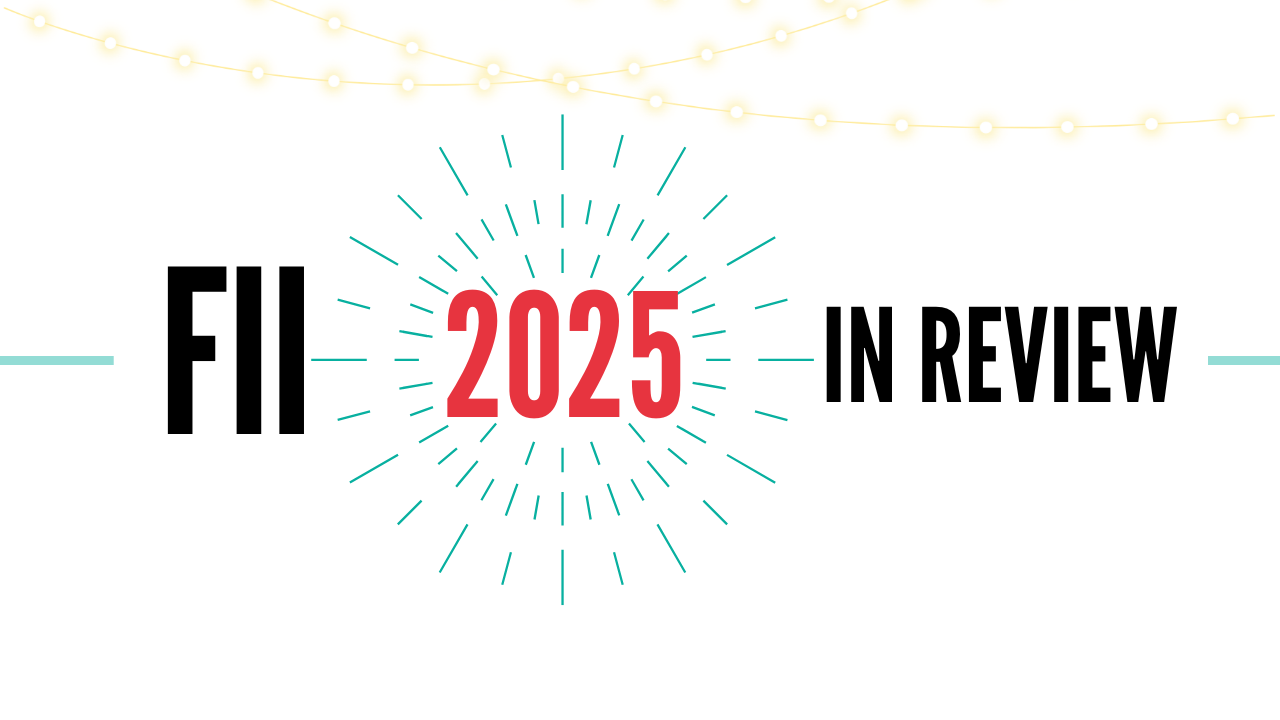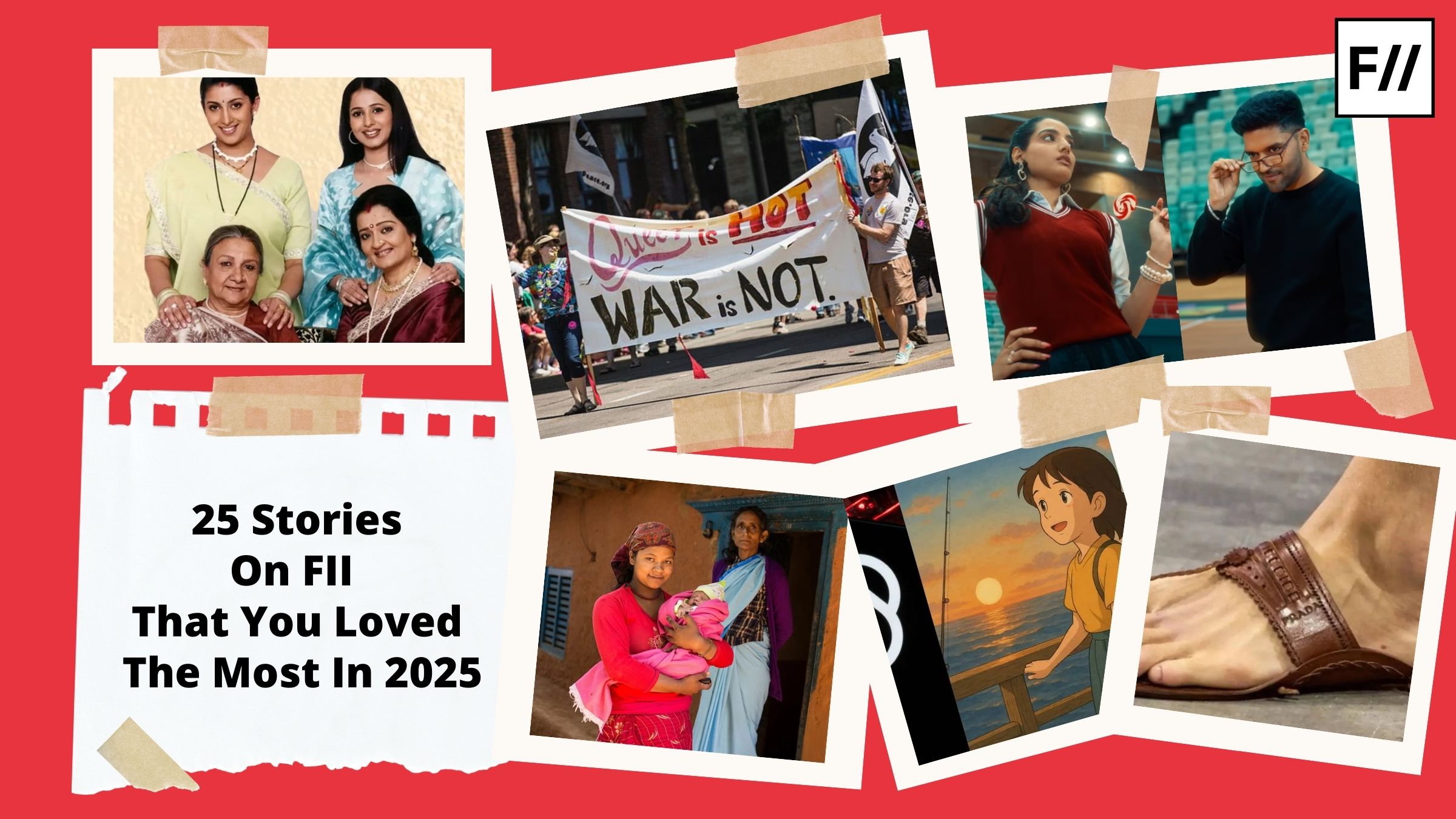We have been featuring the best writers from our writers’ community for their committed contribution to FII, making it what it is today. FII would not exist if not for the passionate and loyal feminist writers’ community that we have steadily been building over the last few years. This March, we feature Shweta Singh.
Shweta hails from a village in Ballia and is fascinated to understand and challenge the deeply ingrained structural inequalities of society, with her writing serving as a step in that direction. Passionate about shedding light on social issues, she uses her words as a tool for change. She also has a keen interest in history, painting, and Hindi literature, which further enriches her perspective and creative expression.
Some of her popular articles include Festival Of Colours Or Fear?: Muslim Man Lynched In UP For Resisting Holi Colours, Barred From Worship: 130 Dalit Families’ Fight For Justice Exposes The Hidden Casteism Of West Bengal, How One Man’s Pursuit Of Queer Rights Created A Safe Haven And Cost Him His Life among others.
FII: Tell us a little about yourself and what you do
I come from a small village in Ballia, but my world expanded when I moved to Banaras with my family. I completed my graduation from BHU and later shifted to Delhi for my master’s. Along the way, I took up several small jobs to gain experience. Currently, I am an aspiring researcher with a keen interest in the interplay between folk traditions and historical expressions, along with this I am working as a freelancer, exploring new opportunities and honing my skills.
FII: How did you become a part of the FII writer family?
During my graduation, while exploring feminism, I came across Feminism in India (FII) and became a regular reader. Later, when I moved to Delhi and was looking for paid work, I came across FII’s call for internships. That’s how I got the opportunity to work as an intern with Feminism in India Hindi.
Last year, after going through a personal tragedy, I had to search for work again. That’s when I reconnected with FII and started contributing articles for the website once again.
FII: How and when did you become a feminist?
I have been a feminist for as long as I can remember. Growing up, I could clearly see the discrimination and harassment faced by the women around me whether it was me, my mother, housemakers, farmers, or agricultural laborers. However, my understanding of feminism evolved in stages, and I am still in the process of learning and unlearning.
As a teenager, I began questioning the masculine, patriarchal norms within my own home. It was only when I entered university and engaged in debates and discussions that I fully grasped the structural nature of patriarchy. I realised how deeply gender discrimination operates at multiple levels and began to understand its underlying logic. During my master’s, my perspective expanded even further. I not only deepened my understanding of these structures but also recognised the patriarchal traits ingrained within myself and started challenging them.
FII: Which issues within feminism are close to your heart?
I feel deeply connected to intersectional feminism, as it acknowledges how multiple forms of oppression—such as caste, class, and gender—intersect to shape women’s experiences. For me, feminism isn’t just about gender equality in a broad sense; it’s about addressing the specific struggles of women from marginalised backgrounds, including those in rural communities like mine.
I strongly uphold the popular feminist tenet “the personal is political,” as I see feminism as a tool to challenge the patriarchal structures within my own home and village. The everyday struggles of women in my community—whether they are housemakers, farmers, or laborers—are not isolated issues but part of a larger systemic oppression that needs to be dismantled.
What is your favourite piece on this site that you have written, and your favourite piece on this site that you have read?
Why did they strike you?
My favourite article among my own writings is Driving Change: Kaveri’s Story Of Redefining Gender Norms As Karnataka’s First Transgender Auto Driver, because Kaveri’s life and struggles deeply resonated with me. At the time I was writing it, I was feeling incredibly disheartened, questioning why it felt like all the burdens of struggle had fallen on me. But as I began researching Kaveri’s journey, her strength and resilience had a profound impact on me. The way she stood firm in her identity and fought for herself was truly remarkable—it gave me a renewed sense of courage and determination.
Kolam: The Silent Canvas of Protest is my favorite article because it highlights how a traditional art form has become a powerful tool of resistance. From Jallikattu and anti-CAA protests to pandemic awareness, kolam has been a impactful voice for the people. I particularly love how it reflects Tamil women’s resilience whether as challenging social restrictions of bonding in ’90s or as a symbol of peaceful defiance today.
FII: What do you like to do when not writing about gender and social justice?
I enjoy painting, especially exploring India’s diverse tribal and regional folk art forms. I find something magical about the way stories come alive through colors and patterns. Traveling gives me that same sense of connection – I love going on solo trips, taking myself out on little self-dates, and simply wandering, lost in new places. At the same time, I also cherish the laughter and warmth of hanging out with friends often.
FII: What do you like about FII and our work?
What I love most about Feminism in India (FII) is how it makes feminist debates accessible to people in simple, relatable language. But beyond that, I truly appreciate how FII, through its writer community, actively promotes intersectionality, ensuring that diverse voices and experiences are represented and valued.
FII: What more would you like to see from us?
I would love to see FII extend its reach beyond online spaces and engage directly with women who lack access to literacy. Organising regular offline public meetings and workshops in villages and marginalised urban areas could help bring feminist discussions to those who need them the most. This would make the platform’s impact even more inclusive and accessible.
FII thanks Shweta for her timely and valuable contributions. We are incredibly grateful to have her as a part of our writers’ community and appreciate her for the deeply informative writing.
About the author(s)
Feminism In India is an award-winning digital intersectional feminist media organisation to learn, educate and develop a feminist sensibility and unravel the F-word among the youth in India.




